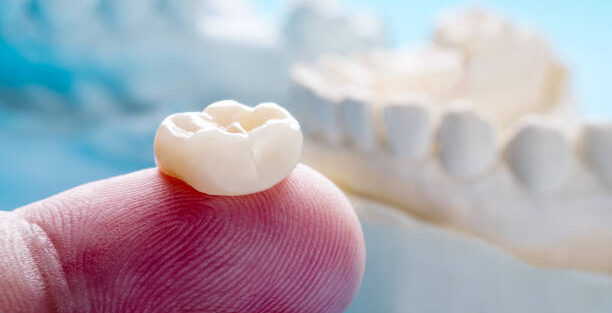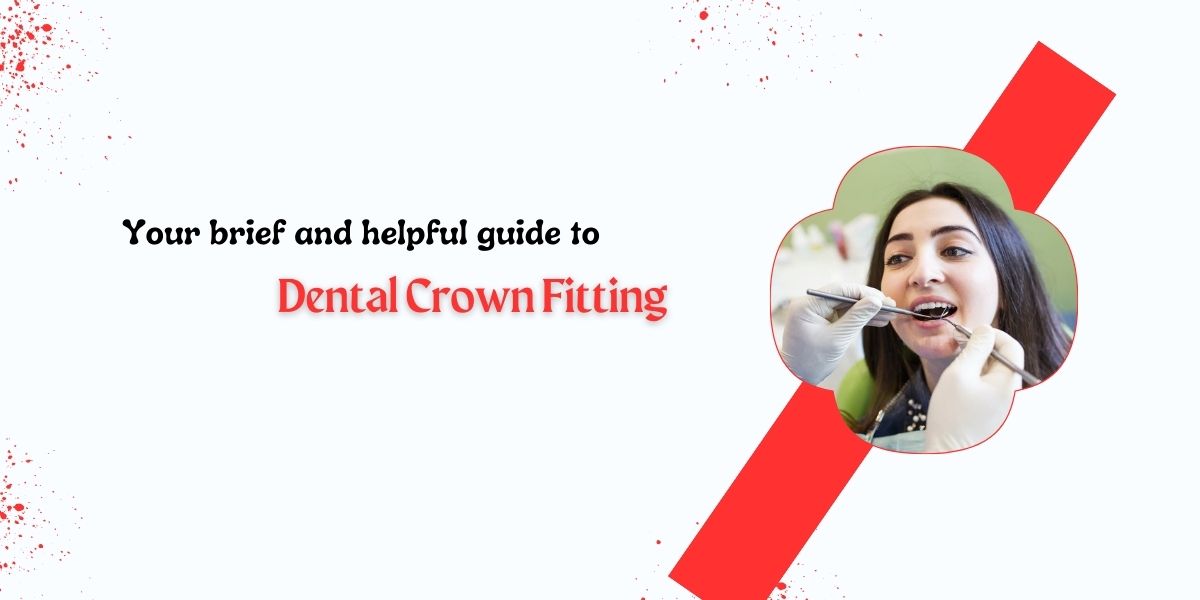If you have a damaged tooth then probably you need a dental crown to restore it. Modern dentistry offers non invasive procedure to enhance the aesthetics of your smile in form of crowns. In the following sections of this post let us explore dental crown – different types of crowns that are available, the pros and cons of each of those varieties, the cost that you have to pay for the treatment, how to take proper care of broken tooth crowns and other relevant factors.
A Brief Overview And Guide To Dental Crown Fitting

A dental crown is basically a covering for the visible part of the tooth. It comes in the shape of a tooth and helps restoring the entire visible part of a tooth. There are many reasons to recommend fixing crowns for a dentist some of which include the following –
- A crown is effective restoring a damaged tooth
- It provides reinforcement to a weak tooth
- Enhances appearance of the teeth to a great extent
A crown is also suitable in cases where a decay in the tooth leaves too much space for filling.
Different types of dental crowns are made from different materials and thus there are differences in appearance. Some crowns look just like your natural teeth while others have a metallic appearance.
Dental Crowns Versus Tooth Caps

There is actually no difference between a dental crown and a tooth cap. Both the terms refer to the same thing and same dental restoration, explains a dentist in London who handles cases of broken tooth crown. A cap and a crown in modern dentistry identify a tiny device which is meant to cover the whole of the visible part of a tooth. a crown is usually placed on a tooth that is already trimmed and scrapped. However some people are observant enough to point out caps come in the colour of the tooth whereas crowns come in metallic colour.
Items That go in Making a Tooth Crown
Dental crowns are mostly made from the following materials –
- A type of dental ceramic which usually comes in the colour of the tooth and the examples include zirconia and porcelain
- Alloys of metals (which include both precious and non precious metals; precious metals include gold, platinum and palladium to name a few)
It is also important to note that these metal alloys come either in white or yellow colour.
- PFM crowns are also available (PFM stands for porcelain fused to metal) which are a combination of ceramic and metal
In addition to the types mentioned above there are acrylic tooth crowns which are temporary crowns that you wear while waiting for the permanent crowns to come. We have also heard about gold crowns or dental crowns made of gold. These crowns are never made from pure gold. Pure gold is malleable and hence too soft to act like a tooth crown. Gold crowns are basically made from alloys of gold and to prepare a gold crown, pure gold is combined with various other metals.
Choosing a Suitable Crown Type
Different types of crowns made from various materials have their own pros and cons. Therefore the right type of dental crown always varies from person to person. Mainly three factors determine the right type of crown for every individual –
- The teeth that need to be crowned or capped
- The kind of aesthetic enhancements one expects from it and
- The duration for which one wants the solution to last
Ceramic crowns are designed in dental labs and are built in layers. This is the reason why the range of products is translucent and natural in appearance. The range of crowns is the obvious choice for the teeth in the front of the mouth, explain lab technicians having years of experience in dental crown repair. On the downside these are easily prone to cracks.
Gold crowns are actually made from alloys of gold and these are much longer lasting and biocompatible. A tooth capped with gold crown does not cause any damage to the adjacent teeth. Many people find this range of dental crowns appealing. On the flipside crowns made of precious metals like gold and platinum are quite costly.
Crowns made of metal are not uniquely popular because of their colour.
PFM crowns are quite durable and aesthetically appealing but they do not look natural. Interestingly Ceramic coating of this range of dental restorations is prone to chips and cracks but the metal stays intact.
Standard Price of a Dental Crown
The price of dental crowns is not uniform and varies from one dental practice to another. The price also varies from case to case. The material from which an emergency crown is made determines its price to a large extent. According to dental technicians experienced in repairing loose crowns, the cost is the maximum for ceramic crowns while minimum for metal ones. On the other hand crowns for the teeth in the front of the mouth are costlier compared to those for the teeth at the back. This is because a lot of effort and hard work are required to make the crowns for the front teeth look natural.
The following table will give you a clearer idea about the price –
| Crown type | Cost |
| Metal crown | Ranges from £250 to £600 |
| Ceramic crown | Ranges from £350 to 950 |
It is important to note that these prices mentioned above do not include the consultation or treatment fees of a dentist.
Cost Saving For Dental Crowns Through Insurance
Dental insurances are a tried and tested way to reduce the cost of dental crown fitting. Dental insurance policies in the United Kingdom usually covers crown fitting. Go through your insurance policy carefully to identify the annual limits and the waiting periods. This is how you will know how much money you have to pay on your own to get a dental crown fitted.
Average Life of a Dental Crown
Dental crowns will not last you a lifetime. However crowns made from certain materials prove to be more durable than others. An example will help explaining this aspect clearer – gold crowns do not crack as easily as porcelain ones. Average life of a dental crown is usually anywhere between 5 and 15 years although in some cases it may last longer. Trained professionals at Emergency Dentist London Pro who repair dental crowns opine that your crown will need replacement under the following circumstances –
- It suffers breakage or crack (this is common with ceramic crowns)
- It wears down badly (common with metal crowns)
- It makes the supporting teeth wear down badly (this is also common with ceramic ones)
- There is decay in the capped tooth
In addition to the factors mentioned above if the appearance of a crown is less appealing then it can also be replaced with a new one.
Hope you enjoyed this useful and helpful content based on “Dental Crown”. For more information like this stay connect with us on latestbite.com Thanks for your precious time.



